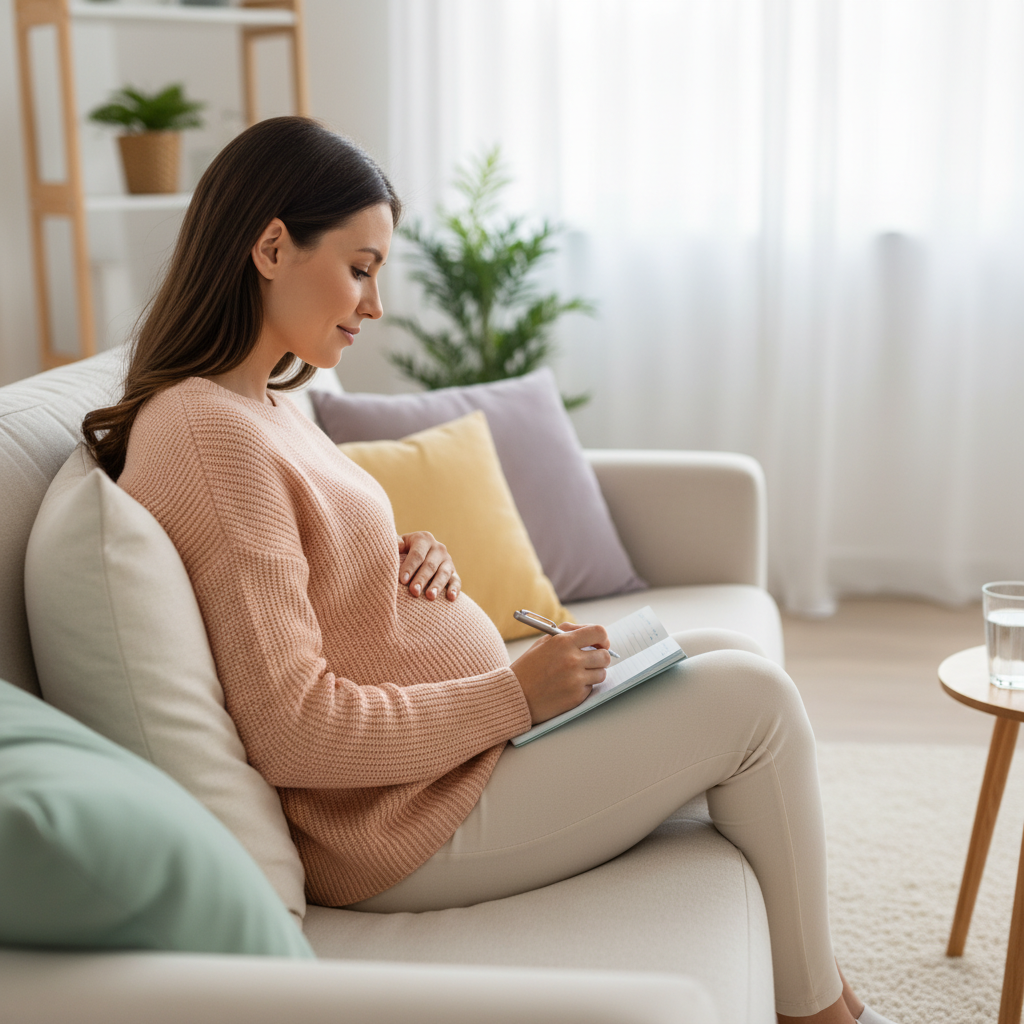
Recognizing Warning Signs During the Second Trimester
While the second trimester is often considered the most comfortable period of pregnancy, it remains important to stay vigilant about potential warning signs that may require medical attention. Understanding these signs can help you distinguish between normal pregnancy changes and symptoms that warrant a call to your healthcare provider, ensuring both your health and your baby’s development stay on track.
Key Highlights
Here are the essential warning signs to watch for during your second trimester:
- Vaginal bleeding or persistent abdominal pain requires immediate medical attention
- Sudden swelling, severe headaches, and vision changes may indicate preeclampsia
- Noticeable changes in your baby’s movement patterns should be reported to your doctor
- Fever over 100.4°F (38°C) or signs of infection shouldn’t be ignored
- Shortness of breath, chest pain, or one-sided leg swelling needs prompt evaluation
Understanding Changes: Normal vs. Concerning Symptoms

The second trimester (weeks 13-27) typically brings relief from early pregnancy symptoms like morning sickness and fatigue. During this time, you’ll likely feel more energetic and begin to experience your baby’s movements. However, it’s crucial to recognize the difference between expected changes and warning signs. Mild discomfort, occasional Braxton Hicks contractions, and some swelling in your feet and ankles are generally normal.
What’s not normal are symptoms like vaginal bleeding, severe or persistent abdominal pain, or cramping that doesn’t subside. According to the American College of Obstetricians and Gynecologists (ACOG), any amount of vaginal bleeding during pregnancy warrants a call to your healthcare provider. While some spotting can be harmless, it could also signal potential complications such as placental problems or preterm labor, especially when accompanied by cramping or pain.
Understanding Changes: Headaches and Vision Disturbances
Mild headaches are common during pregnancy due to hormonal changes and increased blood volume. However, pregnancy headaches during the second trimester that are severe, persistent, or accompanied by vision changes require immediate attention. These symptoms, especially when combined with sudden swelling in your face or hands, may indicate preeclampsia – a serious blood pressure condition that typically develops after 20 weeks.
The American Pregnancy Association notes that visual disturbances like blurred vision, seeing spots or flashing lights, temporary vision loss, or light sensitivity should never be dismissed. These symptoms could indicate elevated blood pressure affecting your neurological system. If you experience any of these symptoms, contact your healthcare provider right away, as early detection and management of preeclampsia are essential for preventing complications.
Your Body & Baby: Monitoring Movement Patterns

Most women begin feeling their baby’s movements between 18-22 weeks, though first-time mothers might notice them later than those who’ve been pregnant before. By the 2nd month of your second trimester (around week 16-20), you may start feeling subtle movements that progress from “flutters” to more distinct kicks and jabs. As you move further into your pregnancy, your baby will establish regular activity patterns that you’ll come to recognize.
A significant change or reduction in your baby’s movements can be a warning sign that requires attention. The “count to 10” method is a simple way to monitor movement: sit quietly and count how long it takes to feel 10 movements. According to the Mayo Clinic, if you notice a substantial decrease in movement, or if it takes longer than 2 hours to feel 10 movements, you should contact your healthcare provider. Your baby’s movements are important indicators of well-being and shouldn’t be ignored if they seem to change dramatically or stop altogether.
Your Body & Baby: Cardiovascular and Respiratory Concerns
During pregnancy, your cardiovascular system undergoes significant changes to support both you and your growing baby. Some breathlessness during the 2nd trimester is normal as your expanding uterus puts pressure on your diaphragm. However, severe shortness of breath that comes on suddenly, makes it difficult to speak, or occurs while resting requires immediate medical evaluation.
Similarly, while heart palpitations can occasionally happen during pregnancy, chest pain or persistent heart racing should never be ignored. The March of Dimes emphasizes that these symptoms could indicate serious conditions like pulmonary embolism or heart problems. Another concerning sign is one-sided leg swelling, especially when accompanied by pain, redness, or warmth, as this may indicate a blood clot (deep vein thrombosis). Blood clots during pregnancy require prompt treatment to prevent potentially serious complications.
Healthy Living Tips: Managing Infections and Fever

Infections during pregnancy require special attention because they can affect both maternal and fetal health. A fever over 100.4°F (38°C) during the 2nd month pregnancy or any time during gestation shouldn’t be ignored. While some mild infections may resolve on their own, others require prompt treatment to prevent complications.
Urinary tract infections (UTIs) are common during pregnancy and may present with symptoms like painful urination, increased frequency, cloudy urine, or lower abdominal pain. The Centers for Disease Control and Prevention (CDC) recommends seeking treatment for UTIs promptly during pregnancy, as untreated infections can lead to kidney infections or increase the risk of preterm labor. Other infection warning signs include unusual vaginal discharge with odor, rash with fever, or severe sore throat with high fever.
Healthy Living Tips: Emotional and Mental Wellbeing
Pregnancy brings significant hormonal and life changes that can affect your emotional health. While mood swings are normal, persistent feelings of sadness, anxiety, or hopelessness that interfere with daily life shouldn’t be dismissed. The American Psychiatric Association reports that approximately 14-23% of women experience depression during pregnancy, and these symptoms deserve attention and support.
Warning signs of mental health concerns include having trouble functioning in daily life, withdrawing from loved ones, experiencing panic attacks, or having thoughts of harming yourself. If you’re struggling with your mental health during your 2ns trimester, reach out to your healthcare provider, who can recommend appropriate support resources. Remember that seeking help for mental health is just as important as addressing physical symptoms during pregnancy, and effective treatment options are available.
Staying Informed and Proactive Throughout Your Second Trimester
Knowing the warning signs during pregnancy empowers you to take appropriate action when needed while avoiding unnecessary worry about normal pregnancy changes. Always trust your instincts—if something feels wrong, it’s better to check with your healthcare provider than to wait. Most pregnancy warning signs require simple evaluation and reassurance, while some may need prompt intervention to ensure the best outcomes for you and your baby.
Remember that your healthcare team is there to support you through all aspects of your pregnancy journey. Keep all scheduled prenatal appointments, communicate openly about any concerns, and don’t hesitate to reach out between visits if warning signs appear. With the right knowledge and care, you can navigate your second trimester with confidence and peace of mind.
Sources
American College of Obstetricians and Gynecologists (ACOG) – Bleeding During Pregnancy
American Pregnancy Association – Preeclampsia
Mayo Clinic – Fetal Movement: Feeling Baby Kick
March of Dimes – Blood Clots and Pregnancy
Centers for Disease Control and Prevention (CDC) – Pregnancy and Infections
American Psychiatric Association – Depression During Pregnancy
